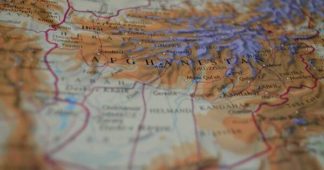It’s too late for incremental change. By mobilising just 25% of people, we can flip social attitudes towards the climate
By George Monbiot
14 Nov 2021
Now it’s a straight fight for survival. The Glasgow Climate Pact, for all its restrained and diplomatic language, looks like a suicide pact. After so many squandered years of denial, distraction and delay, it’s too late for incremental change. A fair chance of preventing more than 1.5C of heating means cutting greenhouse gas emissions by about 7% every year: faster than they fell in 2020, at the height of the pandemic.
What we needed at the Cop26 climate conference was a decision to burn no more fossil fuels after 2030. Instead, powerful governments sought a compromise between our prospects of survival and the interests of the fossil fuel industry. But there was no room for compromise. Without massive and immediate change, we face the possibility of cascading environmental collapse, as Earth systems pass critical thresholds and flip into new and hostile states.
So does this mean we might as well give up? It does not. For just as the complex natural systems on which our lives depend can flip suddenly from one state to another, so can the systems that humans have created. Our social and economic structures share characteristics with the Earth systems on which we depend. They have self-reinforcing properties – that stabilise them within a particular range of stress, but destabilise them when external pressure becomes too great. Like natural systems, if they are driven past their tipping points, they can flip with astonishing speed. Our last, best hope is to use those dynamics to our advantage, triggering what scientists call “cascading regime shifts”.
Continue reading at www.theguardian.com
We remind our readers that publication of articles on our site does not mean that we agree with what is written. Our policy is to publish anything which we consider of interest, so as to assist our readers in forming their opinions. Sometimes we even publish articles with which we totally disagree, since we believe it is important for our readers to be informed on as wide a spectrum of views as possible.











